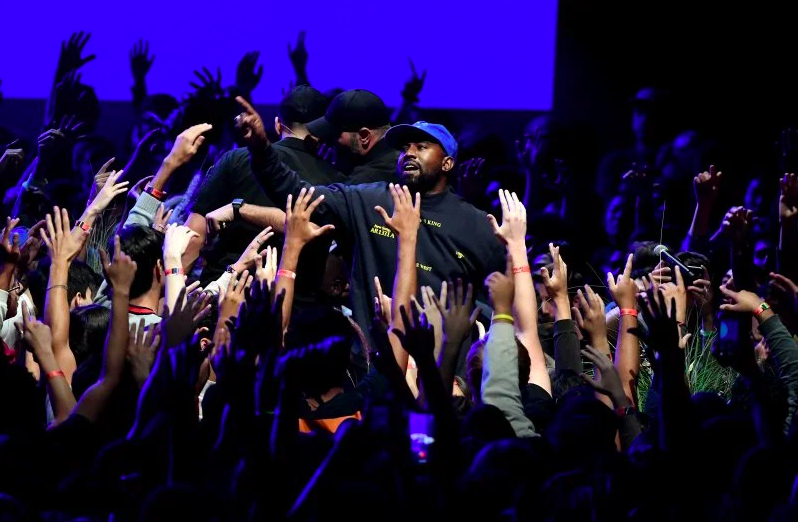Kanye West’s much anticipated album “Jesus Is King,” which dropped on Oct. 29, was quick to please the rapper’s loyal listeners and admirers of gospel music alike. Within three days of its release, eight of the tracks in the album were on Spotify’s US Top 10 list with “Follow God” leading the pack. The most popular track from the series of 11 songs, “Follow God” also took the No. 3 spot on Spotify’s Global List.
Despite the rapper’s unexpected pivot to gospel music, his fanbase is as ecstatic as ever. Kanye associating himself with gospel music is a difficult proposition for an artist who is so famously self-absorbed. By identifying himself with this tradition, West connects to a larger responsibility of soul, inspiration, healing and service. Now, even individuals who were not previously regular Kanye listeners have the rapper’s tracks from this album on repeat. It is least to say that the album, as predicted, is well on its way to be the rapper’s ninth consecutive No.1 album and also No.1 debut, tying with Eminem — an artist often identified in popular culture as a “rap god.”
However, regardless of West’s success online and on streaming services, the album has led to much conversation and controversy in the Christian community based on the rapper’s political beliefs and, in the eyes of many, sudden return to the Black church as a strategy to reclaim support from the community.
In “Jesus Is King,” Kanye West depicts himself as a lonely martyr barred from the Christian kingdom. The album mixes choral refrains, soul samples, trap drums and West’s signature autotune. In the tracks, West raps about not only Jesus but Chick-fil-A too, in appreciation of their weekly Sunday closures due to religious beliefs. Throughout the tracks, the audience hears West’s change into a gospel artist leaving the devil’s domain and now embracing a divine light. Although the album’s subject material and tone evidently deviate from traditional gospel music, many have said that the modernization of sounds in the album is necessary for the genre to grow and evolve. Furthermore, the use of the choir The Samples — who also performs at West’s weekly Sunday Services – is one that has been fervently praised due to the way they have been highlighted instead of kept as background vocals.
Many gospel singers and members of the African American Christian community have praised West and the album, saying, “Kanye is a part of the contemporary movement which has revolutionized music” and that the sound of the album is essential to reach the younger public.
Meanwhile, others have expressed contrasting views. There are many who are critical of Kanye’s political views as a Trump supporter. As such, they have criticised the rapper’s album as a mixture of his economic and political views with religious ones, perhaps truthfully so.
Those who overlook the political aspects of West’s art, however, seem to believe that West is using his reach to preach Christianity to a younger audience. At the extreme opposite to praise, the album has been received quite negatively from those who see it as Kanye’s disingenuous and surface level pledge to faith.
Setting aside the varied criticisms about it, however, it is true that the album, although rooted in the sound of Black gospel, fails to capture the soul of it — i.e what true gospel music stands for. Despite the fact that the album is emblematic of West’s internal struggles in his spiritual journey, other than the title of the album and how it has been marketed, it is not Jesus who is at the center of the art, but West himself. As such, although “Jesus Is King” should perhaps be an object of cultural celebration for those within the Christian community, it currently serves as a point of debate. Not only for a singular artist’s use of religion to market his art, but sheds light on a bigger question in popular culture.
The album makes us question where listeners draw the line in accepting and celebrating art that depicts subjects of sincere value to the history of ethnic people, which in this case just happens to be the role of the gospel in helping people cope with life’s most difficult trials. Ultimately, it seems that this album should be called not “Jesus Is King,” but rather “Kanye is King.”




